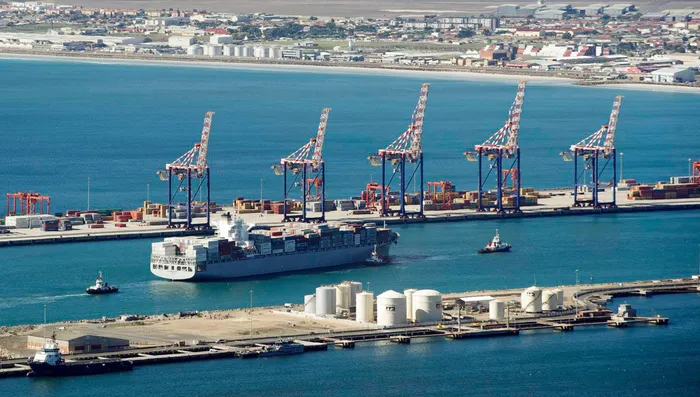Transnet receives R51 billion bailout: Implications for South Africa's logistics sector
ANALYSIS

Analysis by the maritime sector has been mostly positive to the news that Transnet would be receiving a R51 billion bailout for Transnet announced by the Minister of Transport last week.
Image: File
Analysis by the maritime sector has been mostly positive to the news that Transnet would be receiving a R51 billion bailout for Transnet announced by the Minister of Transport last week.
Transnet, in a statement, said that it welcomes the Minister of Transport’s announcement of a R51 billion government guarantee facility to support its sustainability and long-term growth.
“The facility will enable Transnet to refinance maturing debt and ensure the organisation’s continued access to adequate resources and facilities to be able to continue its operations as well as fund the capital investment programme for the foreseeable future.”
Dave Watts, a maritime consultant, said that the communication from Transnet does not make clear how much of the R51 billion guarantee will be used to roll over or refinance current debt and how much will be used for increased borrowing.
“Clearly the state guarantees are critical in enabling the organisation to continue as a going concern and provide ongoing services to the SA Logistics sector and broader economy.”
Watts added that refinancing maturing debt is not paying debt off; however, it is essential that there is sufficient working capital to enable ongoing operations and capital investments.
“Investment in infrastructure and equipment will, in the long run, enable volume and revenue growth, providing the ability to reduce the corporation's substantial debt burden. It is critical for the entire economy that there are sufficient funds to enable Transnet not only to continue operations but to sustain and expand on its current capital expenditure programme.”
Malcolm Hartwell, Norton Rose Fulbright director and master mariner, said that Transnet will use the bailout in part to refinance maturing debt, which was reported to be in the region of R120 billion earlier this year.
“It is also going to be used to pursue public sector participation (PSP) transactions being implemented in the port and rail networks. Transnet’s capital debt, which has grown significantly over the last decade, is one of the obstacles Transnet faces in its attempt to revitalise the rail and port facilities. Much of its income is being used to service that debt and a bloated wage bill, which has not been helped by its recent agreement with the majority unions on wage increases or its ongoing dispute with United National Transport Union (UNTU) regarding wage increases."
Hartwell added that the effect of this is that Transnet has not been in a position to invest at all in maintenance of existing infrastructure or building new infrastructure.
“In part, this has driven Transnet’s recent enthusiasm to embrace PSPs, which have seen the signing of a number of agreements for terminal operations in Durban and Richards Bay and its invitation to the private sector to invest in rail operating agreements. The guarantee, which hopefully is closely protected by criteria to ensure that the money is properly invested in infrastructure rather than in wages, has to be welcomed by everybody involved in the logistics network.
Hartwell said that Transnet’s virtual monopoly over much of South Africa’s logistics infrastructure means that its operational efficiency and cost models affect South Africa’s entire import and export industry, which is the backbone of South Africa’s economy.
“It is trite economic theory that investment in infrastructure creates the most significant return on investment, and it is to be hoped that this guarantee helps Transnet accelerate its privatisation programme. While details of the maturing debt have not been released, if a portion of this guarantee is to help refinance that debt, this must free up capital for investment in maintenance and thereby attract more interest from the private sector in PSPs involving the port and rail networks.”
Hartwell added that the guarantee will allow Transnet to continue to operate, and it is to be hoped that this will not be seen by Transnet and its employees as an opportunity to consider carrying on business as usual.
“Given all of the well-publicised recent initiatives, however, it seems likely that the guarantee will help Transnet revitalise the rail and port facilities to enable South Africa to continue to be the gateway into Africa.”
A maritime consultant who did not want to be named said that a large portion of the Government bail-out will unfortunately have to be utilised for the purposes of reducing the debt with International Funders secured in EUROS and not all for the acquisition of new equipment.
“This will also unfortunately result in a less than optimum impact of the bail-out on improved operations. For maximum impact on operations, the Government should have a qualifier to the bail-out of the nature that it should largely be used for the acquisition of new equipment.”
BUSINESS REPORT
Visit: www.businessreport.co.za